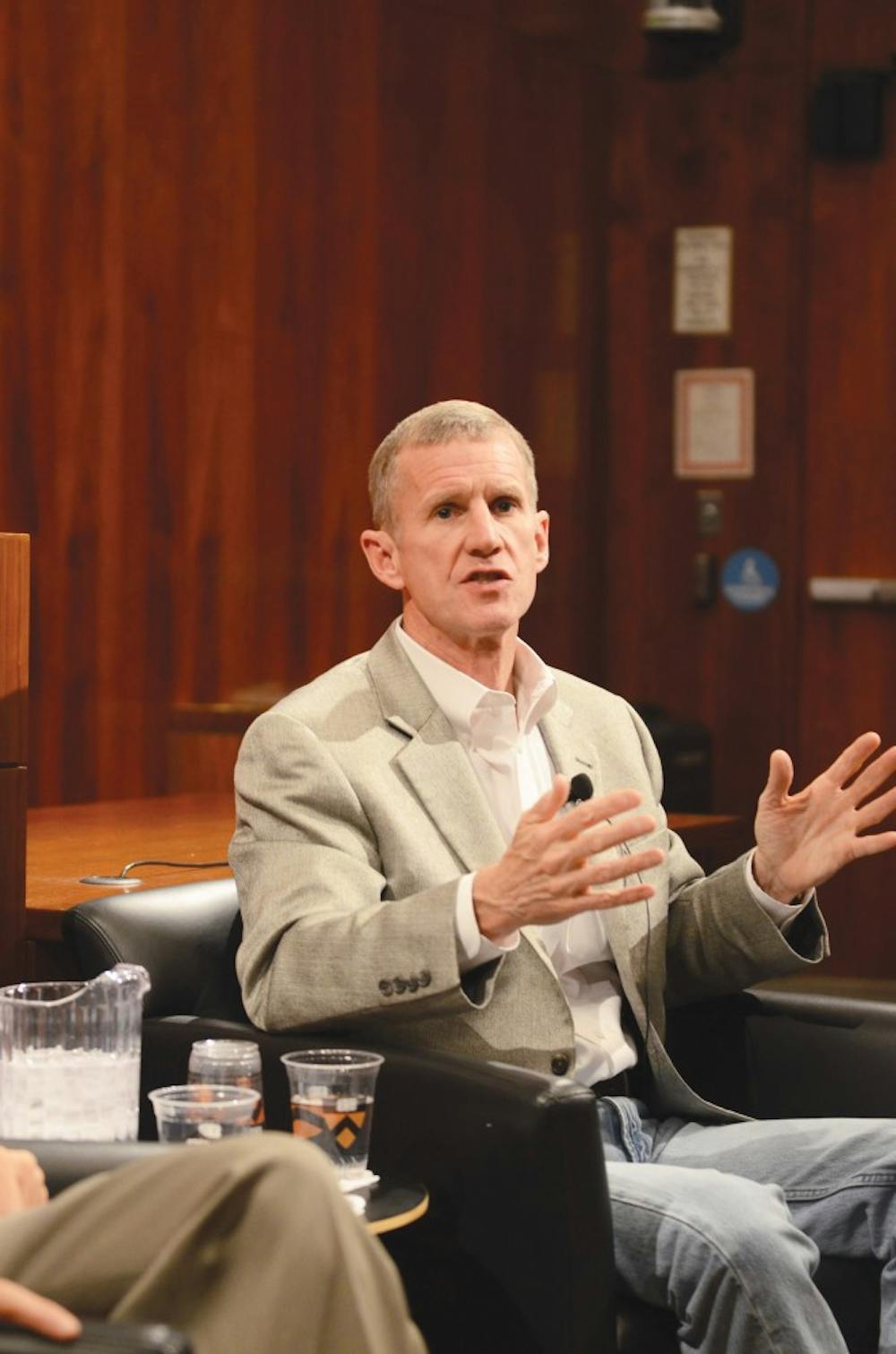Retired United States Army General Stanley McChrystal spoke about his military experience and his views on the current military situationon Wednesday in a conversation with former ‘Newsweek’ Washington bureau chief Evan Thomas.
In particular, he said the United States needs to be actively involved in the Middle East and civilian and military leaders need to form tighter relationships.
McChrystal, now a professor at Yale and 2014 Anna and G. Mason Morfit ’97 Distinguished Visitor at Princeton, had his last military assignment as Commander of the International Security Assistance Force and Commander of U.S. forces in Afghanistan during the ongoing conflict in that country.
Evan Thomas is an author, former editor-at-large at Newsweek Magazine and the former Ferris Professor of Journalism at the University.
The discussion opened with a broad discussion of the United States’ role in the Middle East, and McChrystal pointed to several reasons for U.S. involvement, including its desire to fill the power vacuum left by European decolonization in the 20th century and economic interests over the flow of oil.
“We are there for a lot of reasons, but we are now reassessing what the region means to us,” McChrystal said.
McChrystal said the United States needs to remain actively engaged in the Middle East and the world and explained that if the US does not remain engaged in world affairs, someone else would, which might lead to unpleasant outcomes for the country.

“Active engagement is necessary,” he said. "There’s no ‘over there’ in the world anymore.”
The conversation then moved to the recent conflict in Iraq and Syria with ISIS, the violent organization whose goal is to establish a new Islamic caliphate in the region.
“ISIS is a symptom of the fact that the institutions in the region are crumbling. In this chaos, we have the rise of ISIS,” McChrystal said. “They threaten the credibility of the government [in Iraq].”
McChrystal argued that the way to combat ISIS is not only to defeat them militarily but to address the longer-term problem of what the US wants from the region.

“We need a negotiated settlement in Syria,” he said. “And even with that, we would have to engage in 10–20 years of nation-building.”
Thomas said the United States is not particularly good at nation-building historically, but McChrystal said it should be the favored route in the region.
Thomas then shifted the discussion to McChrystal’s role in leading U.S. Special Forces units—which McChrystal argued are useful but are not a “silver bullet” for every global issue —and to leadershiplessons that McChrystal had learned from his military service.
McChrystal said he believes that in order to make tough decisions, it is necessary for the civilian and military leaderships to bond and form personal relationships in order to eliminate trust issues.
“If you take people who grow up in different worlds and then suddenly you come together, you’re not speaking the same language. There’s no trust through shared experience,” he said. “Personal bonds are needed to make tough decisions.”
Thomas ended the discussion by asking McChrystal about a 2010 Rolling Stone article, in which several members of McChrystal’s staff allegedly expressed their disapproval of President Barack Obama’s handling of the situation in Afghanistan.After the article was published, McChrystal handed in his resignation from the post of top commander in Afghanistan and was replaced by David Petraeus.
McChrystal said that he realized that he was going to have to resign, even though he said the words in the article did not reflect the truth he knew.
“The cause didn’t need a general causing controversy,” he said. “That was not my mission.”
McChrystal added, however, that incident aside, he does not regret anything about his service. He concluded by saying that when anyone asks him about the Rolling Stone affair, he says it is behind him.
The conversation, titled “From the Front Lines: Lessons in Leadership,” was held in Dodds Auditorium in Robertson Hall at 4:30 p.m. A book signing followed the lecture.








